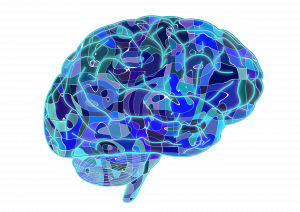It can seem like there’s a new Alzheimer’s “breakthrough” almost every day. We sift through the headlines and pull together the relevant, reputable research updates for you. Here are 6 things you should know about Alzheimer’s and dementia research from the last month. To learn about Alzheimer’s research in San Diego County, click here or contact Alzheimer’s San Diego at 858.492.4400.
1) Harvard research shows link between eye diseases and dementia
According to research conducted by Harvard Medical, scientists are finding a possible link, or higher risk association, between Alzheimer’s disease and glaucoma, age-related macular degeneration and diabetic retinopathy. Cataracts, however, have not been linked in this way. Albert Hofman, chair of epidemiology at the Harvard T.H. Chan School of Public Health, suggests the commonality among pathologies is cardiovascular disease. This explains why cataracts are not among that list since they have less to do with cardiovascular health.
In 1994, The Adult Changes in Thought study began and included 5,400 dementia-free adults. Research published in Alzheimer’s & Dementia in 2019 analyzed data from 3,800 participants in that study, with and without eye diseases. About 792 of them went on to develop dementia. Study authors found that people with age-related macular degeneration were 20% more likely to develop dementia compared with people who did not have the eye disease. Further, people with diabetic retinopathy were 44% more likely to develop dementia than those without, while people in the study with a recent glaucoma diagnosis — but not participants with the established disease — had a 44% higher rate of dementia. It’s currently suggested, but unknown, if eye exams may help predict or diagnose Alzheimer’s or other dementias. However, this research seems to strengthen the link between cardiovascular disease and Alzheimer’s disease.
Read more about Alzheimer’s disease and Macular Degeneration on the Bright Focus website.
2) High cholesterol linked to Alzheimer’s disease
Researchers looked at the link between LDL cholesterol levels and early-onset Alzheimer’s disease. LDL cholesterol can cause fatty deposits to build up in the arteries and narrow them, which can raise the risk of conditions including heart disease, stroke, and peripheral artery disease. A study published in JAMA Neurology found a connection between a genetic mutation of the APOE gene called APOE E4 and Alzheimer’s, as well as high levels of LDL wanting to see if this connection also exists within early-onset. The authors looked at the cholesterol levels of 267 blood samples taken from the Alzheimer’s disease research centers at Emory University and University of California, San Francisco. They also sequenced the genes of 2,125 people finding 654 had early-onset Alzheimer’s, while the remainder acted as the control group.
Participants who had higher levels of LDL cholesterol were more likely to have early-onset Alzheimer’s disease compared with those whose LDL wasn’t so high. But when scientists adjusted for the potential effects of the APOE E4 mutation, the risk between LDL cholesterol and Alzheimer’s remained. This suggests LDL poses a risk independent of the APOE E4 mutation. However, the authors argued: “the existing data has been murky on this point. One interpretation of our current data is that LDL cholesterol does play a causal role. If that is the case, we might need to revise targets for LDC cholesterol to help reduce Alzheimer’s risk. Our work now is focused on testing whether there is a causal link.”
Read the full article at Newsweek.
RELATED | Get your questions answered by Alzheimer’s researchers at Date With A Cure
3) Researchers test vaccine they hope could stem Alzheimer’s
Researchers at the University of New Mexico are working on a vaccine they hope could prevent Alzheimer’s. In 2013, researchers showed initial success in using a series of vaccine injections on mice. The vaccine targets a specific protein known as tau that’s commonly found in the brains of Alzheimer’s patients. The antibodies injected seem to have cleared (out) pathological tau. The mice were then given a series of maze-like tests. The mice that received the vaccine performed a lot better than those that hadn’t. However, success in trials in mice doesn’t always translate to humans.
Read the full article from CBS and more from KRQE and Salon.
4) New Alzheimer’s blood test to start clinical study this fall
Researchers from Lund University, together with the Roche pharmaceutical company, have used a method to develop a new blood marker capable of detecting whether or not a person has Alzheimer’s disease. This could create a new diagnostic tool to detect Alzheimer’s. In a study from JAMA Neurology, researchers collected blood samples from 842 people in Sweden and 237 people in Germany. These included people with Alzheimer’s disease, healthy elderly people, and people with MCI. The study demonstrated a high degree of accuracy in detecting indicators beta-amyloid in the blood. Researchers think this will be a helpful tool in screening patients for clinical trials. The next step is to test the method in a larger population to ensure its accuracy with the general population. A major primary care study is planned for the fall.
Read more: Technology Networks, Medical Express, Med Tech Dive.
5) Commonly prescribed drugs are tied to nearly 50% higher dementia risk in older adults, study says
Anticholinergic drugs have been found to be linked to dementia diagnosis. Their effect is to help relax or contract muscles, and doctors can prescribe them to help treat bladder conditions, gastrointestinal problems, and some of the symptoms of Parkinson’s disease. A study published in the journal JAMA Internal Medicine on Monday suggests that the link is strongest for certain classes of anticholinergic drugs: antidepressants, bladder antimuscarinics, antipsychotics, and antiepileptic drugs. Researchers found that for a patient using the drug daily for 10 years, the increase in risk of developing dementia risk rose by about 50%. Compared to those who didn’t have exposure to these classes of drugs, which is about 1.06, those who did had a risk of 1.49. While the study confirms ongoing research about the effect of long term use of these drugs, the study’s lead author, Carol Coupland said that people taking these medications are advised not to stop them without consulting with their doctor first. The study was only observational and does not prove causation. Further research is needed to determine harms of stopping anticholinergic medications, such as worsening symptoms of depression, incontinence, or pain, as well as the potential unintended increase in acute health care utilization.
Read more: CNN, Medical News Today.
6) Dr. Huaxi Xu (C4C grant recipient) authors papers that demonstrate importance of brain immune response in progression of Alzheimer’s Disease
Dr. Huaxi Xu was awarded a seed grant from Collaboration4Cure and went on to receive a large award from NIH. His lab is now working on understanding how TREM2, a receptor found on immune cells in the brain, interacts with toxic amyloid beta proteins to restore neurological function. He’s had two articles published in scientific journal Neuron (Paper 1, Paper 2). The papers explore how TREM2 interact with beta-amyloid proteins to affect neural function in the brain. The second paper shows the increasing TREM2 can improve brain function by increasing the “microglia” that degrade amyloid proteins. Researchers have known that mutations in TREM2 significantly increase Alzheimer’s risk which shows the significance of this particular receptor. In Dr. Xu’s words, “this provides convincing evidence that minimizing amyloid beta levels alleviates Alzheimer’s disease symptoms”
Read more at Sanford Burham Prebys Discovery Institute.
To participate in clinical trials here are some links to nationwide registries:
- Cleveland Clinic Healthy Brains Registry — take an online brain health assessment and learn about brain health studies.
- Alzheimer’s Prevention Registry — get information and updates about participating in future Alzheimer’s prevention trials.
- GeneMatch — enroll to get matched to Alzheimer’s genetics studies.
- Brain Health Registry — sign up for an online study of brain health and learn about possible research-study opportunities.
- Alzheimer Prevention Trials (APT) Webstudy — enroll to track memory and thinking skills and learn about Alzheimer’s trials
To learn about Alzheimer’s research in San Diego County, click here or contact Alzheimer’s San Diego at 858.492.4400.





